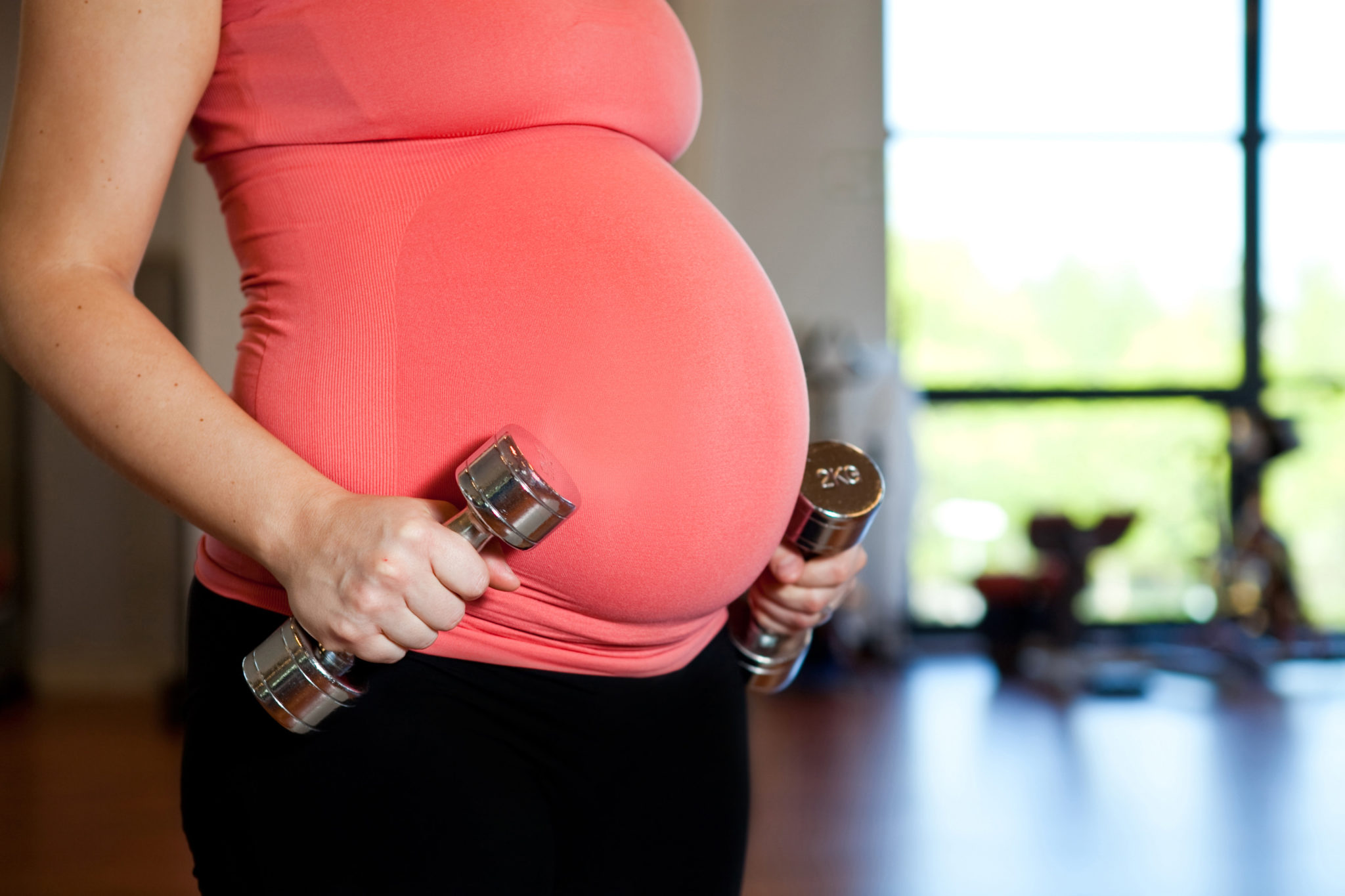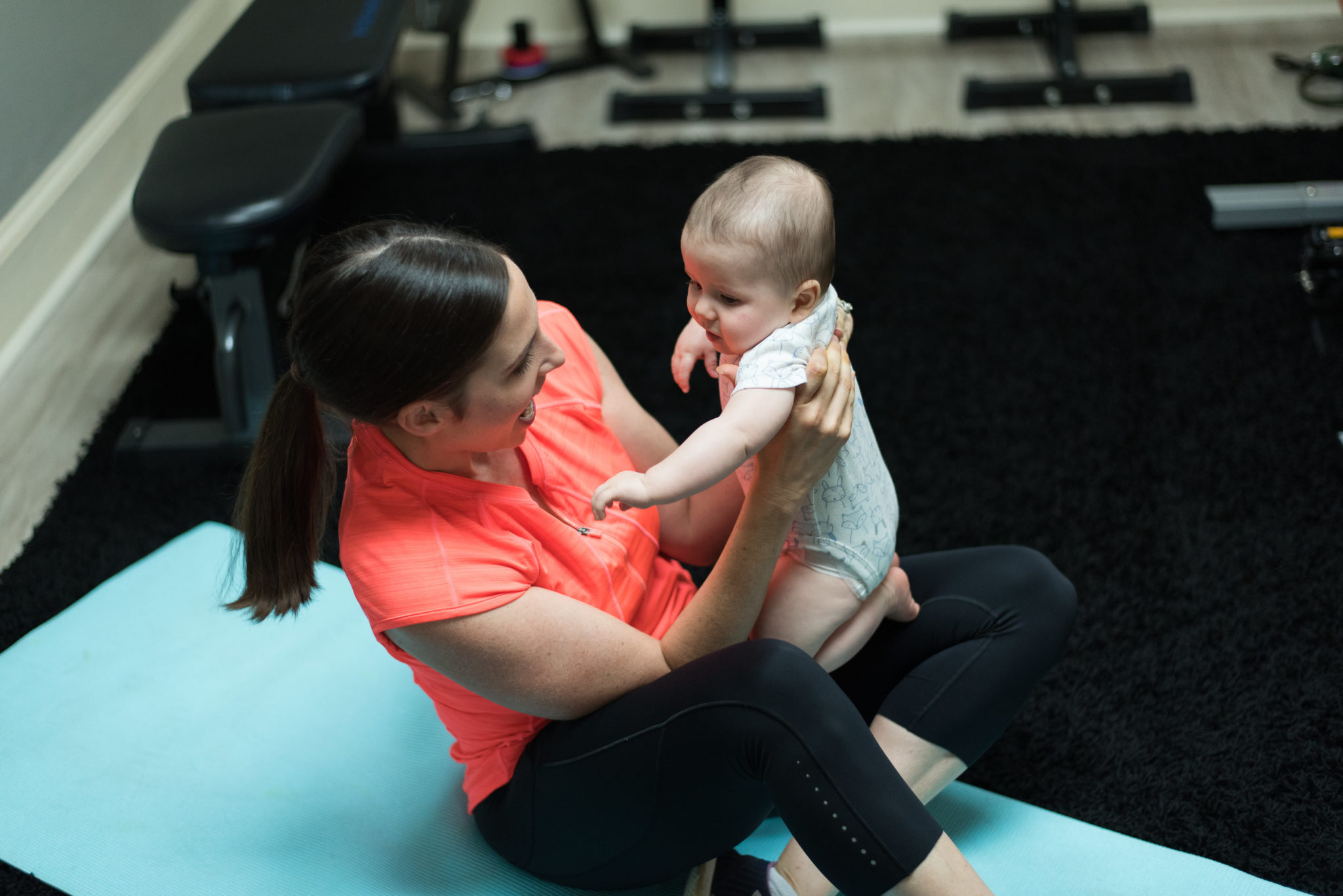If you’re trying to concieve, you might not be putting much thought into your workout. After all, most women expect to gain weight during pregnancy so why bother?
Why workout only to lose that flat tummy a few months later, right?
Wrong!
Exercise is an incredible fertility boosting tool!
Freebie Alert! Sign up to get my DIY strength training guide. I made this guide so you can create a strength training workout that will help you with TTC.
Top 5 reason to work out if you are trying to conceive with PCOS
- Working out improves insulin resistance. Regardless of weight, most women with PCOS have some insulin resistance which can interferer with ovulation and cause complications during pregnancy.
- Strength training lowers androgens and Anti-Müllerian hormone. High levels of these hormones are associated with infertility in PCOS.
- Women who workout (regardless of size) tend to have more body confidence and better sex drive.
- Fertility treatments are more likely to succeed when you are at a healthy weight, ideally a BMI of 30 or below.
- Fit mothers tend to have easier deliveries, less pregnancy complications and healthier babies.
Tip #1 Take a moderate approach
In some cases, over-exercising can cause fertility problems like hypothalamic amenorrhea. To eliminate any risk of over-exercising, I recommend alternating between more vigorous workouts and low-intensity activity on recovery days. Try doing 2-4 intense workouts a week that include a mix of strength training and cardio plus light activities like walking, dance or hatha yoga on your recovery days.
Tip #2 strengthen the upper back
A strong upper back will help you maintain good posture as your belly and breasts grow during pregnancy. Plus once baby arrives, you’ll need that extra strength for holding and breastfeeding your bundle of joy.
BTW- In addition to helping with posture, strength training is very effective for balancing your hormones. You can read more about that here.
To strengthen the upper back incorporate two upper body pulling exercises into every full body strength workout. Examples of upper body pulling exercises include:
- Cable lat pulldowns
- Bent over dumbbell rows
- Suspension trainer rows
- Resistance band pull aparts
Tip #3 Try a mix of HIIT and walking for cardio.
As I mentioned before Insulin resistance can interfere with ovulation. High-intensity interval training (HIIT) workouts are ideal for improving insulin resistance. HIIT workouts, as the name suggests, are an intense form of cardio. To keep your overall workout program moderate in its approach, I recommend pairing two or three short HIIT with daily walks. Walking is terrific for keeping your activity level up without over exercising. Plus it is a fabulous stress buster.
Tip #4 Perfect your squat
Squats work some of the largest muscles in your body, so it is a terrific exercise for boosting your metabolism and increasing muscles mass. The squat is also a very practice movement for mothers. The squat is a helpful position for giving birth because the pelvic floor is able to open and relax, and gravity is working with you as you push. And eventually, your baby will be a heavier toddler who will ask you to squat down and pick them up many times over each day.
Tip #5 Sync your workouts with your circadian rhythms
Trying to get pregnant with PCOS can cause stress, anxiety and make falling asleep difficult. Which is so annoying because stress and sleep deprivation mess with your hormonal health. UGH!!!
Strategically scheduled workouts can take the edge off fertility stress and sleep problems. If you feel particularly anxious or have trouble sleeping, try scheduling your vigorous workouts (strength training, cardio and HIIT) in the morning and your lighter recovery workouts (like walking, light yoga or stretching) in the evening. Vigorous morning workouts will help lower stress hormones throughout the day and lighter activities in the evening will help you relax and get a good night’s rest.





